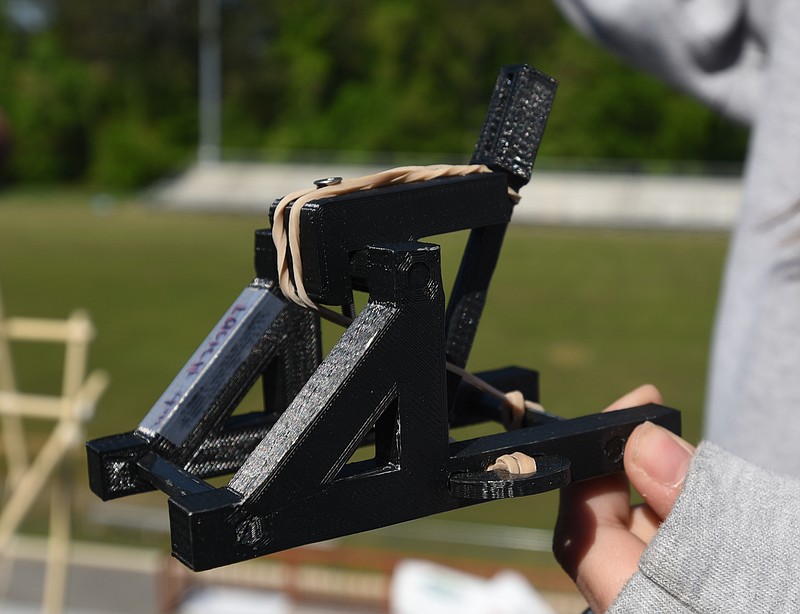New instructional standards coming down from the Georgia Department of Education will be changing how Catoosa and Walker county schools teach their science and social studies courses.
While officials with both counties say the content of what is being taught is not dramatically changing, how teachers go about engaging their students in and out of the classroom is.
"We're looking at more lab studies and hands-on lessons and experiments," said Walker County Curriculum Director Robin Samples. "We're moving away from a lecture-based curriculum to better engage with our students. We want to get students involved in the critical thinking process."
This could mean many things, depending on the teacher. It could mean more classes outside if the science lesson for the day is observable outside the classroom. It could also mean more group assignments, where students must research and communicate their findings to the teacher.
Ingrid Jones, the professional learning coordinator for Catoosa County's Office of School Improvement, gave the example of an elementary school science lesson on clouds. Rather than simply lecture to students about clouds from the textbook, teachers could take the students outside to observe the clouds that day and ask them questions about why they think clouds form the way they do. In this way, teachers would try to guide the students to the right answer rather than simply telling them.
"We want teachers to create questions for the students, with an emphasis on doing rather than just reading. Not to say there won't be reading, but the textbook won't be the be-all and end-all," said Jones. "Our goal is to foster inquisitiveness and curiosity in our children."
The level and difficulty of homework is not expected to drastically change in any way. Assignments could change to more research projects rather than reading assignments, but that would vary on a teacher to teacher basis.
By trying to engage students in their studies across the board in ways other than lecture, the hope is better grades and test scores could follow.
Samples said the state has been investigating these new standards for several years, and has solicited feedback from teachers and school districts numerous times. Teacher involvement in the process has been constant, she said.
"There will still be a minimum set of expectations to show proficiency, but we think teachers will be open to expand and grow the framework for their lessons," said Samples.
A Socratic method of teaching, in which the instructor asks questions of the students, challenging them to consider the possible answers, is another way teachers could run their classrooms under the new standards.
"I think our main goal is to get kids excited about science and social studies," said Denise Montgomery, a science teacher at Heritage Middle School in Ringgold. "They'll have more opportunities to do science, rather than just read about it. It won't be more difficult exactly, but what they're learning will have greater depth."
While officials from both counties said they expect implementation to be imperfect at first, considering the drastic shift in tone for the lessons, they said they were hopeful it would lead to more engaged students in the long run.
Teacher training in the new methods has taken place over the course of the past year. The new method will be implemented for the 2017-2018 school year.
